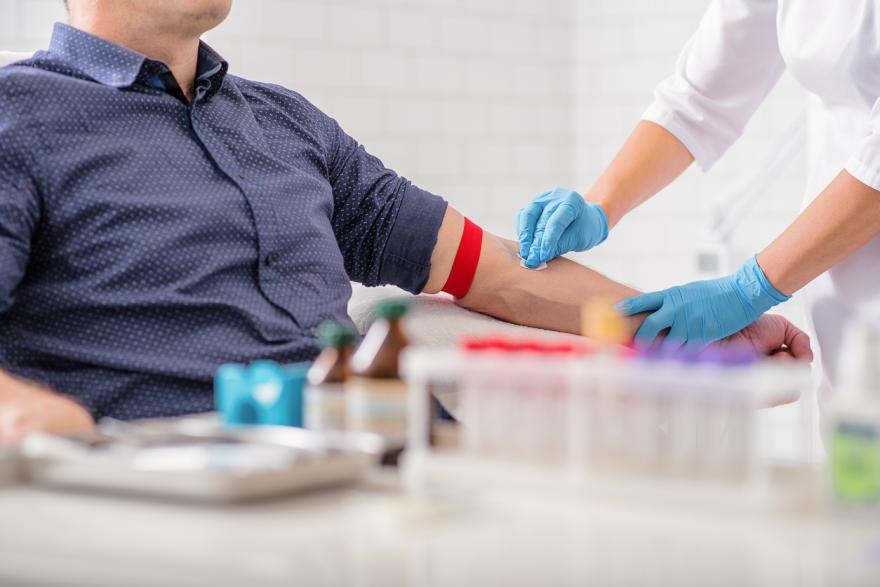
Heart attacks, often referred to as “silent killers,” are a leading cause of mortality worldwide. According to the World Health Organization, more than 17 million people die from cardiovascular diseases each year. A significant number of these deaths occur due to heart attacks, which strike unexpectedly and can be fatal if not detected and treated promptly. However, advancements in medical science have provided us with a powerful tool for early detection – the simple blood test. In this article, we will explore the importance of regular blood tests in saving lives from heart attacks and improving heart health.
Understanding Heart Attacks
Definition and Causes
A heart attack, also known as a myocardial infarction, occurs when there is a sudden blockage of blood flow to a part of the heart muscle. This blockage is usually caused by the buildup of fatty deposits and cholesterol in the coronary arteries, known as atherosclerosis. Other causes can include blood clots or spasms in the arteries.
Risk Factors
Certain factors increase the risk of experiencing a heart attack. These include:
- age
- family history
- smoking
- high blood pressure
- diabetes
- obesity
- sedentary lifestyle and
- high cholesterol levels
Understanding these risk factors is crucial for early intervention and prevention.
Warning Signs
Recognizing the warning signs of a heart attack is essential for seeking immediate medical attention. Symptoms of heart attack can include:
- chest pain or discomfort
- shortness of breath
- nausea
- lightheadedness
- pain or discomfort in the arms, back, neck, or jaw
Prompt action can make a significant difference in the outcome of a heart attack.
Importance of Early Detection
Silent Heart Attacks
Not all heart attacks present with dramatic symptoms. Some occur without any noticeable warning signs, and these are known as silent heart attacks. Such heart attacks often go unnoticed, making them even more dangerous. Regular screening through blood tests can help identify these silent attacks and prevent future complications.
Role of Blood Tests
Blood tests play a vital role in the early detection of heart disease and risk assessment. One of the essential blood tests for heart health is the lipid profile.
Where To Get Tested?
Say Goodbye To Waiting Rooms And Long Lines. Speedy Sticks offers at-home testing.
The Simple Blood Test

What is a Lipid Profile?
A lipid profile is a blood test that measures various cholesterol levels in the blood. These include low-density lipoprotein (LDL) cholesterol, high-density lipoprotein (HDL) cholesterol, and triglycerides. LDL cholesterol is often referred to as “bad” cholesterol, while HDL cholesterol is considered “good” cholesterol.
Cholesterol Levels and Heart Health
High levels of LDL cholesterol can lead to the formation of plaque in the arteries, increasing the risk of heart attacks. On the other hand, HDL cholesterol helps remove excess cholesterol from the arteries, reducing the risk of heart disease. A lipid profile provides valuable information about these cholesterol levels, allowing healthcare professionals to assess an individual’s heart health.
Other Blood Markers for Heart Disease
In addition to cholesterol levels, other blood markers, such as C-reactive protein (CRP) and homocysteine, can provide insight into the risk of heart disease. These markers are essential in identifying inflammation and other factors that contribute to heart attacks.
Benefits of Regular Screening
Preventive Measures
Early detection through regular blood tests enables individuals to take preventive measures. Lifestyle changes, such as adopting a heart-healthy diet, engaging in regular exercise, and quitting smoking, can significantly reduce the risk of heart attacks.
Medical Interventions
For individuals at higher risk, early detection allows healthcare professionals to recommend appropriate medical interventions, such as cholesterol-lowering medications, to manage heart health effectively.
Overcoming Fear and Misconceptions
The Anxiety Surrounding Heart Health
Many individuals fear the prospect of heart disease and may avoid blood tests due to anxiety or apprehension. It is crucial to address these fears and emphasize the life-saving benefits of early detection.
Dispelling Myths About Blood Tests
Some misconceptions exist about blood tests, leading to hesitancy among individuals. It is essential to debunk these myths and promote the understanding that blood tests are safe, simple, and instrumental in safeguarding heart health.
Taking Charge of Your Heart Health
The Role of Diet and Exercise
Maintaining a balanced diet and engaging in regular physical activity are cornerstones of heart health. A heart-healthy diet, rich in fruits, vegetables, whole grains, and lean proteins, can significantly reduce the risk of heart attacks.

Stress Management Techniques
Chronic stress can contribute to heart disease. Employing stress management techniques, such as meditation, yoga, or spending time in nature, can have a positive impact on heart health.
Regular Check-ups and Follow-ups
Finally, regular check-ups with healthcare providers are essential for monitoring heart health and ensuring timely intervention if any issues arise. Following up on recommended treatments and lifestyle changes can further enhance heart health.
How often should I get a blood test for heart health?
Regular screening is recommended for individuals with risk factors, such as high cholesterol or a family history of heart disease. Consult your healthcare provider for personalized guidance.
Can lifestyle changes alone prevent heart attacks?
Lifestyle changes, including a heart-healthy diet and regular exercise, can significantly reduce the risk of heart attacks. However, individuals at higher risk may also benefit from medical interventions.
Are Blood Tests Painful?
Blood tests are generally quick and relatively painless, involving a simple blood draw from the arm.
What should I do if I experience symptoms of a heart attack?
If you experience symptoms like chest pain, shortness of breath, or discomfort in the arms, back, neck, or jaw, seek immediate medical attention.
Conclusion
In conclusion, the simple blood test plays a crucial role in the early detection of heart disease, particularly heart attacks. Regular screening through a lipid profile and other blood markers empowers individuals to take charge of their heart health. By identifying risk factors and implementing preventive measures, we can significantly reduce the occurrence of heart attacks and improve overall heart health.
Say Goodbye To Waiting Rooms And Long Lines. Speedy Sticks offers at-home testing.









Recent Comments